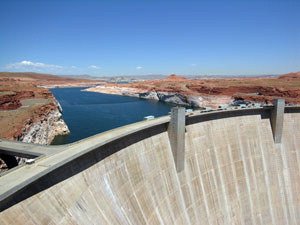University of Minnesota conference on Nov. 11-12 explores "Experiments on Rivers: The Consequences of Dams"

Contacts:
Todd Reubold, Institute on the Environment, reub0002@umn.edu, (612) 624-6140
Jeff Falk, University News Service, jfalk@umn.edu, (612) 626-1720
Conference examines the effects, both intended and unintended, of dams in the Midwest and across the world
MINNEAPOLIS / ST. PAUL (11/02/2010) —The University of Minnesota will host a major conference on dams, “Experiments on Rivers: The Consequences of Dams,” Thursday and Friday, Nov. 11-12, at the University's Nolte Center, 315 Pillsbury Drive S.E., and the St. Anthony Falls Laboratory auditorium, 2 3rd Ave. S.E., Minneapolis.
The goal of the conference is to develop a research and policy agenda around the long-term future of dams and other large-scale engineered structures in rivers. Conference attendees will be encouraged to think broadly about the consequences of dams on human and natural ecosystems and begin to raise questions about the steps that might be necessary if one considers removal of dams.
The conference will begin with a keynote by Christopher Sneddon, professor of environmental studies and geography at Dartmouth College, titled “Concrete Revolution: Cold War Geopolitics and the Proliferation of Large Dams, 1933-1975.” Sneddon’s research focuses on the political ecology of river basin development, primarily in Southeast Asia. The talk will take place at 4 p.m. Nov. 11 at 125 Nolte Center.
Day two of the conference covers issues of dams and rivers from a variety of scales and perspectives, including governance and human rights in the Global South; dams as part of water rights and sovereignty issues for American Indians; the hydrological impacts of dam removal; and dams and culture.
“The conference is a great opportunity for policymakers, academics, social and natural scientists and others to understand the multiple impacts of dams on river communities,” said Pat Nunnally, coordinator of the River Life Program at the University's Institute on the Environment.
A pre-conference talk by Gordon Grant, USDA Forest Service research hydrologist, will focus on a case study of dam removal. This public talk is scheduled for 5:30 p.m. Wednesday, Nov. 10, and is part of the Research at the Red Stag series presented by the National Center for Earth-Surface Dynamics (NCED).
“Experiments on Rivers: The Consequences of Dams” is part of the University Symposium on Abundance and Scarcity and is cosponsored by the Institute for Advanced Study (IAS), the Interdisciplinary Center for the Study of Global Change (ICDC), the River Life Program of the Institute on the Environment, and the College of Science and Engineering's St. Anthony Falls Laboratory, with support from the University’s Office of the Vice President for Research, the Office of International Programs' Global Spotlight, and NCED (with funding from the National Science Foundation).
The conference is free and open to the public; however, space is limited and pre-registration is advised. Box lunches will be available for conference attendees who register by Nov. 9. To register, contact the Institute for Advanced Study at ias@umn.edu or 612-626-5054.
For more information, visit http://ias.umn.edu/2010/11/12/dams-conference/
